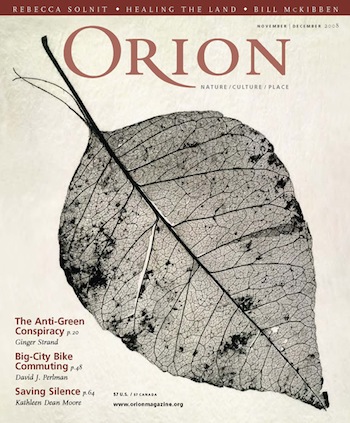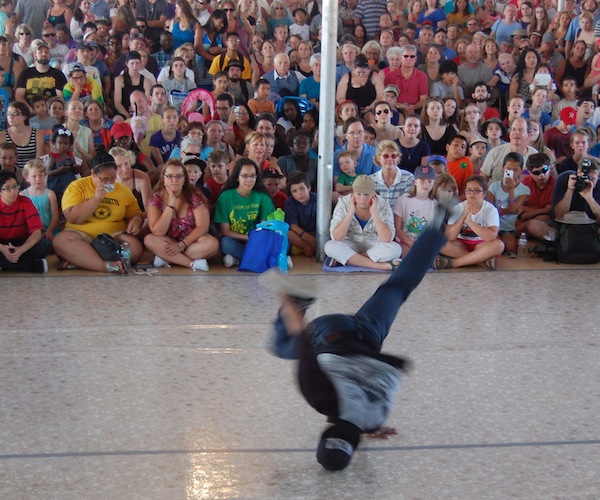Fuse News: Art Works — The News from the NEA
Observers have often commented that NEA money goes disproportionately to large cultural institutions, and that continues to be true, but those investments are dispersed among disciplines and geographies.
By Debra Cash
Money is tight all over, but it’s wonderful to see that some of the area’s most hard-working arts organizations have received grants in the current National Endowment for the Arts cycle.
Observers have often commented that NEA money goes disproportionately to large cultural institutions, and that continues to be true, but those investments are dispersed among disciplines and geographies. On the New England dance scene, this year’s grants include $45,000 to Boston Ballet to support the presentation of Jiri Kylian’s “Bella Figura,” the company premiere of Jorma Elo’s “C. to C. (Close to Chuck),” and in his North American debut, the world premiere of a ballet by Jose Martinez of Spain’s National Dance Company. Boston Dance Alliance, the area’s leading dance service organization, was granted $10,000 to support Of, By, and For the Dance Makers, a capacity-building series of workshops and retreats that will provide technical assistance to local dance artists in producing and presenting work.
Big time regional dance presenters earning awards include $80,000 to Jacob’s Pillow Dance Festival in the Berkshires to support their festival and creative development residencies; $30,000 to Wesleyan University in Middletown Connecticut to support its top-drawer dance series; and $30,000 to Bates College in Lewiston, Maine (where, in full disclosure, I am scholar in residence during its professional summer dance festival) for its Cultivating Innovation and Community in Dance residencies.
The BSO has two NEA grants this time around, one to support its ambitious Beethoven and the Piano cycle activities ($75,000) and the other to support the Festival of Contemporary Music at Tanglewood Music Center ($45,000). Handel & Haydn Society was awarded $22,500 to support performances of Handel’s oratorio Samson, a radio broadcast, and related educational activities, while Boston Baroque will use its $15,000 to support a new production and recording of Monteverdi’s Il Ritorno d’ Ulisse in Patria.
Massachusetts museums have not been neglected by the Endowment: the Gardner Museum receives $65,000 to support its artist-in-residence program; The deCordova Sculpture Park and Museum in Lincoln will develop an exhibition about the influence of Thoreau’s Walden on local and national artists — including some new commissions — with its $45,000 award; the Institute of Contemporary Art is getting $50,000 to support the exhibition and catalogue for a show about textile art from 1960 to the present; and Mass MoCA in North Adams will use its $35,000 to support the commissioning of a two-story high sculptural environment by Lee Boroson. One does wonder, though, why Boston’s Museum of Fine Arts was not at the table when so many big city and university-based institutions were awardees.
The Brattle Theatre in Cambridge will continue to keep its valiant head (barely) above water with the aid of the NEA’s $15,000 to fund its Classic Brattle film series. Boston media workers have a friend in the Association of Independents in Radio (aka AIR), granted $45,000 to keep media artists abreast of the latest trends. Elsewhere in the area, Community Economic Development Center of Southeastern Mass (aka CEDC) in New Bedford will have a much needed $45,000 on hand to support The Working Waterfront Festival; the Lowell Folk Festival was granted $15,000; and the Passamaquoddy Tribe of Maine was granted $15,000 to support a museum exhibition of traditional craft objects and complementary historical artifacts.
Boston’s most high profile theatres may not have big differences in their ambitions — both have been developing works for Broadway as well as plays by new authors — but did have noticeable gaps in the size of their awards. The NEA granted American Repertory Theatre $85,000 to support the premiere of Witness Uganda by Matt Gould and Griffin Matthews while the Huntington will get $25,000 to support Lydia Diamond’s Smart People. Community resources will be strengthened by grants like the new Bedford Zeiterion Theatre’s well deserved $25,000 for multidisciplinary programming.
Two of Boston’s most distinguished literary magazines were singled out, with Boston University’s beloved little magazine, Agni, awarded $10,000 to support its availability in digital format and increase its payment to writers and Ploughshares, published at Emerson College, getting funded the same amount to support its long-form e-reader-format stories and essays. Grants also went to regional publishers Orion Magazine, New England Review and Tupelo Press. Congratulations everyone!
Debra Cash has reported, taught and lectured on dance, performing arts, design and cultural policy for print, broadcast and internet media. She regularly presents pre-concert talks, writes program notes and moderates events sponsored by World Music/CRASHarts and cultural venues throughout New England. A former Boston Globe and WBUR dance critic, she is a two-time winner of the Creative Arts Award for poetry from the Hadassah-Brandeis Institute and will return to the 2014 Bates Dance Festival as Scholar in Residence.
c 2013 Debra Cash


